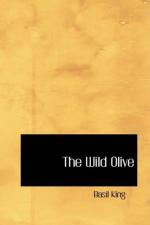“So much the better—tanto mejor,” he said, after a brief pause, and passed on.
VIII
He was again thinking how easy it had been, as he stood, more than three years later, on the bluffs of Rosario, watching the sacks of wheat glide down the long chute—full seventy feet—into the hold of the Walmer Castle. The sturdy little Italians who carried the bags from the warehouse in long single file might have been those he had superintended in the wool-shed in Buenos Aires in the early stages of his rise. But he was not superintending these. He superintended the superintendents of those who superintended them. Tired with his long day in the office, he had come out toward the end of the afternoon not only to get a breath of the fresh air off the Parana, but to muse, as he often did, over the odd spectacle of the neglected, half-forgotten Spanish settlement, that had slumbered for two hundred years, waking to the sense of its destiny as a factor of importance in the modern world. Wheat had created Chicago and Winnipeg Adam-like from the ground; but it was rejuvenating Rosario de Santa FA(C) Faust-like, with its golden elixir. It interested the man who called himself Herbert Strange—resident manager of Stephens and Jarrott’s great wheat business in this outlet of the great wheat provinces—to watch the impulse by which Decrepitude rose and shook itself into Youth. As yet the process had scarcely advanced beyond the early stages of surprise. The dome of the seventeenth-century Renaissance cathedral accustomed for five or six generations to look down on low, one-storied Spanish dwellings surrounding patios almost Moorish in their privacy, seemed to lift itself in some astonishment over warehouses and flour-mills; while the mingling of its sweet old bells with the creaking of cranes and the shrieks of steam was like that chorus of the centuries in which there can be no blending of the tones.
Strange felt himself so much a part of the rejuvenescence that the incongruity gave him no mental nor A|sthetic shock. If in his present position he took a less naA-ve pride than in that of three years ago, he was conscious none the less of a deep satisfaction in having his part, however humble, in the exercise of the world’s energies. It gave him a sense of oneness with the great primal forces—with the river flowing beneath him, two hundred miles to the Atlantic, with the wheat fields stretching behind him to the confines of Brazil and the foothills of the Andes—to be a moving element in this galvanizing of new life into the dormant town, in this finding of new riches in the waiting earth. There was, too, a kind of companionship in the steamers moored to the red buoys in the river, waiting their turns to come up to the insufficient quays and be loaded. They bore such names as Devonshire, Ben Nevis, and Princess of Wales. They would go back to the countries where the speech was English, and the ideals something like his own. They would go back, above all, to the north, to the north that he yearned for with a yearning to which time brought no mitigation, to the north which was coming to mean for him what heaven means to a soul outside the scope of redemption.




